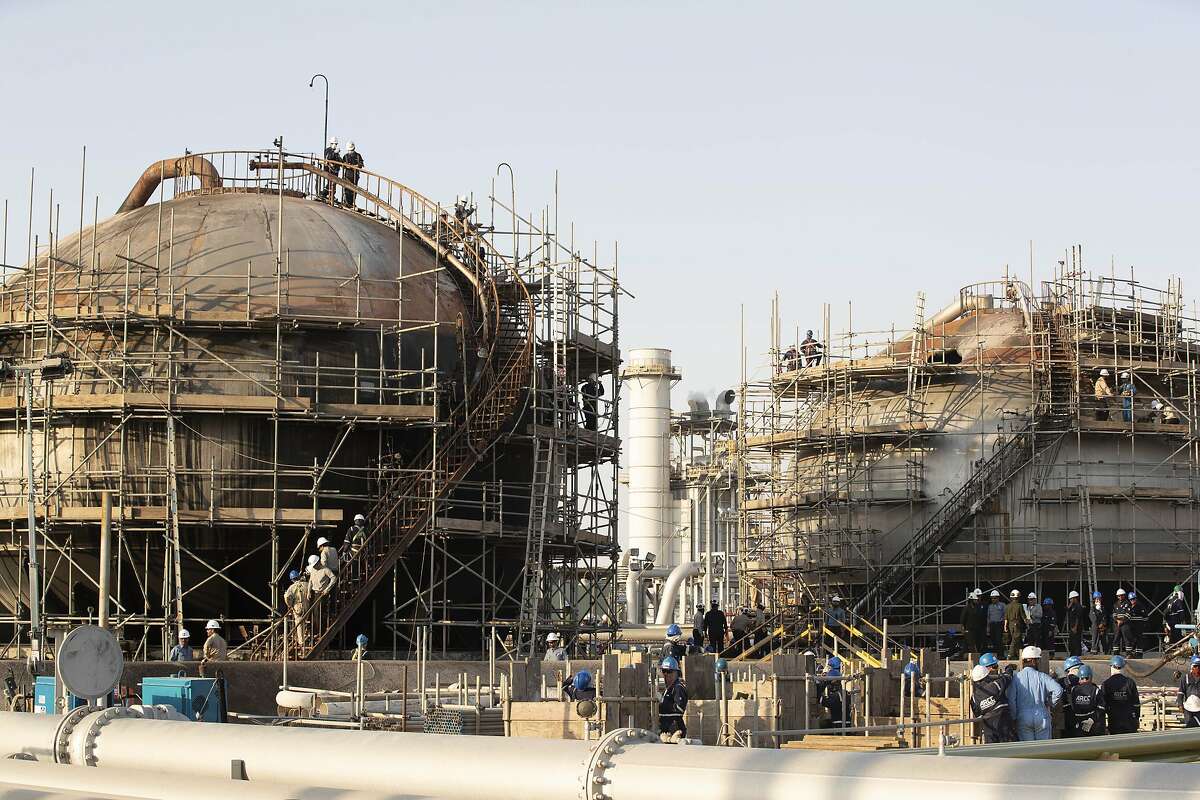The Federal Government’s proposed $5 billion oil-backed loan from Saudi oil giant Aramco has been significantly delayed, as declining oil prices and underwhelming domestic crude production cast doubts on Nigeria’s ability to meet future repayment terms.
Initially pitched during President Bola Tinubu’s 2024 diplomatic visit to Riyadh, the loan was envisioned as a lifeline to support Nigeria’s fragile foreign reserves, ease dollar liquidity constraints, and close widening budget deficits. However, recent developments in global energy markets and local output have forced a rethink.
According to government sources, the deal structured to be repaid through future crude oil deliveries is now facing resistance from potential financing partners, including Gulf and African banks, over concerns about the commercial viability of the arrangement.
Falling Oil Prices Shift the Equation
Since the beginning of 2025, Brent crude has fallen from over $82 to around $65 per barrel, eroding the market value of the barrels Nigeria would allocate to service the loan. Under current price conditions, the government would need to commit significantly more oil to cover the same loan amount raising concerns among lenders over long-term repayment stability.
“The entire loan structure is oil-dependent, and the dip in oil prices has thrown the original assumptions into question,” a senior finance ministry official revealed. “Banks are nervous about pricing volatility and Nigeria’s capacity to deliver crude consistently over the tenor of the loan.”
Production Constraints Add Pressure
Nigeria is currently producing below 1.5 million barrels per day (bpd), far short of its 2 million bpd target. Compounding the issue, around 300,000 bpd is already committed to servicing pre-existing oil-backed loans, leaving limited room to back additional debt without jeopardizing local supply obligations or breaching OPEC production caps.
The Aramco-backed loan would require Nigeria to allocate an estimated additional 100,000 bpd over the repayment period, a move some analysts say is simply not feasible under current operating conditions.
“Servicing this new facility would push Nigeria’s oil commitments to unsustainable levels,” said Bismarck Rewane, CEO of Financial Derivatives Company. “Without a credible path to increasing output or reworking the deal structure, it risks falling apart.”
Investor Confidence and Strategic Relevance
The loan is part of the government’s broader plan to secure $21.5 billion in foreign loans to fund infrastructure, stabilize the exchange rate, and stimulate economic growth. However, the success of this flagship deal is seen as a litmus test for investor confidence in Nigeria’s ability to execute complex commodity-backed transactions.
Originally, Aramco was expected to serve both as financier and crude off-taker, positioning the deal as a strategic Saudi-Nigerian partnership. However, with Aramco’s involvement now reportedly conditional upon more favorable terms and delivery guarantees, the Nigerian government must return to the drawing board.
What Comes Next?
The Ministry of Finance is now exploring possible workarounds, including renegotiating pricing triggers, extending repayment tenors, or seeking co-financing from development finance institutions.
Meanwhile, the Central Bank of Nigeria (CBN) continues to manage currency volatility and inflationary pressures that have intensified amid slow capital inflows.
“If this loan goes through, it would send a strong signal to the market,” said a senior oil sector executive familiar with the negotiations. “But without oil price recovery or a production rebound, it’s a very steep hill to climb.”
Nigeria’s quest for a $5 billion oil-backed loan from Aramco underscores the delicate balancing act between leveraging natural resources for fiscal support and maintaining long-term energy security. With crude prices sliding and production under pressure, the deal may either need to be significantly restructured—or deferred until conditions improve.
For now, the promise of fresh liquidity remains just out of reach, hemmed in by market dynamics beyond Nigeria’s control.

